Windows is a rather stable OS to use, but every so often it runs into bugs and glitches that can cause BSoDs, unexpected crashes or restarts. Diagnosing these errors can also be tricky as there are a number of reasons that could potentially cause this type of behaviour.
In this article, we’re going over how you can check why your PC shut down, as well as giving you a few solutions you can use to solve the problem.
Also read: How to turn delivery optimisation off in Windows 11?
Why did my PC shut down?
The Windows Event Log system tracks everything that happens on your PC. There are three ways you can access these logs.
We’ll be going over all three of these methods.
Using Windows Event Viewer
First up, we’ll be seeing how you can check your PC logs using the Event Viewer.
Step 1: Press the Windows key and search for Event Viewer. Click the corresponding search result.
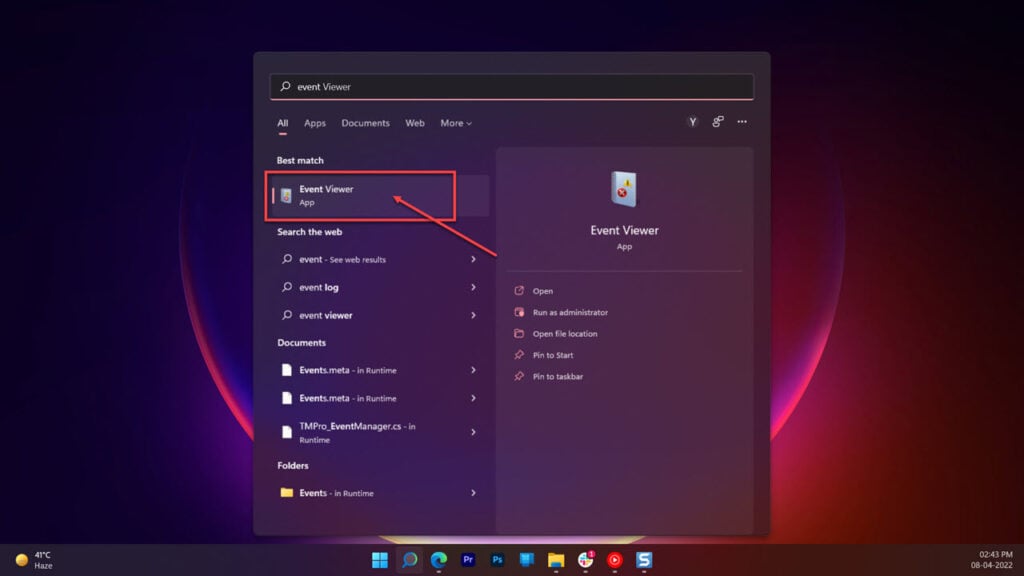
Step 2: Head over to System, under Windows Logs.

Step 3: Right-click System and select Filter Current Log.

Step 4: In the All Event ID text box, include the following numbers. Click OK when you’re done.
- 41: This event is caused when the computer stops responding, crashes or loses power unexpectedly.
- 1074: The event is triggered when the user does a manual shut down or restart.
- 6006: The event happens when the Event Log System has been stopped by a proper shutdown.
- 6005: Indicates that the computer has booted up properly.
- 6008: Indicates an unexpected system shut down.

Step 5: Double-click a log to view all related information.

Using Windows PowerShell
If you’d rather use PowerShell, follow these steps.
Step 1: Press the Windows key and search for PowerShell. Click the corresponding search result.

Step 2: Type the following command and hit enter.
Get-WinEvent -FilterHashtable @{ LogName = 'System'; Id = 41, 1074, 6006, 6605, 6008; } | Format-List Id, LevelDisplayName, TimeCreated, Message
PowerShell will now show you all the related log information.
Using the Command Prompt
Follow these steps to see system logs using the Command Prompt.
Step 1: Press the Windows key and search for Command Prompt. Click the corresponding search result.

Step 2: Type the following command and press enter.
wevtutil qe System /q:"*[System[(EventID=41) or (EventID=1074) or (EventID=6006) or (EventID=6005) or (EventID=6008)]]" /c:100 /f:text /rd:true
You can modify the c:100 flag to show more or fewer logs.
Also read: How to fix the Nvidia Nvlddmkm.sys failed error?
Fixing unexpected shutdowns
Here are some solutions you can try out to fix any unexpected shutdowns on your computer.
Check for overheating issues
While computers do generally run hot under heavy loads, too much heat can cause your CPU, GPU or just about any internal component to stop working and crash the system. Monitor your computer’s temperature closely to see if it’s overheating and crashing.
Check the power supply
Another possible reason for your computer to crash could be that your power supply isn’t supplying as much power as your computer needs. If you’re running a high wattage CPU or GPU, chances are they’re drawing more power than your PSU can supply and hence the random shutdowns. In such situations, it’s best to get a power supply with enough headroom to power everything in your build.
Also read: What does ‘reboot and select proper boot device’ mean? 3 Fixes
Remove recently installed software or updates
If you’ve installed any new software or updates, they might also contribute to the random shutdowns, Try uninstalling any recently installed software or hardware to see if that solves your problem.
At times, a faulty Windows update can also cause unexpected shutdowns. Here’s how to remove them.
Step 1: Press Windows key + I to open Chrome settings and click Update & Security.
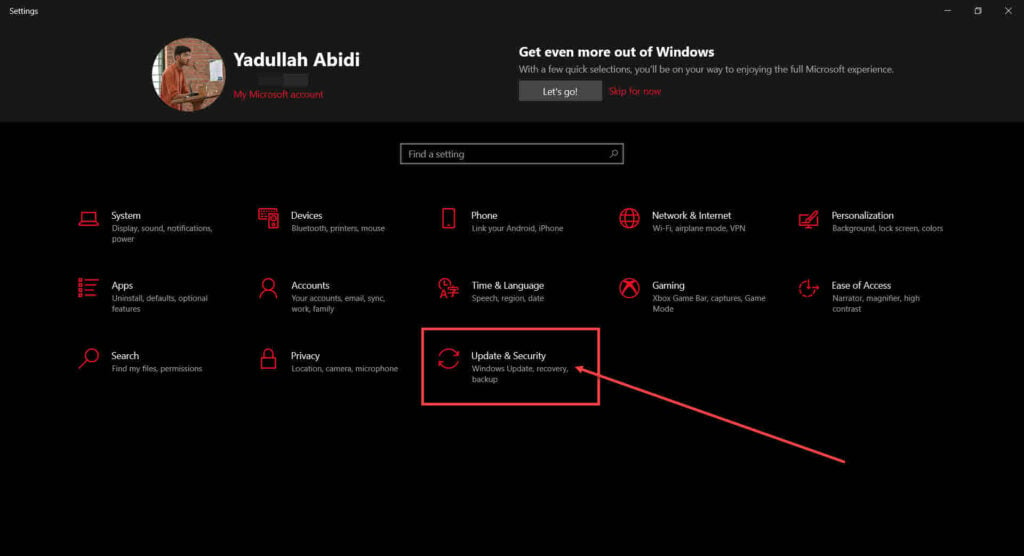
Step 2: Click on View installed update history.
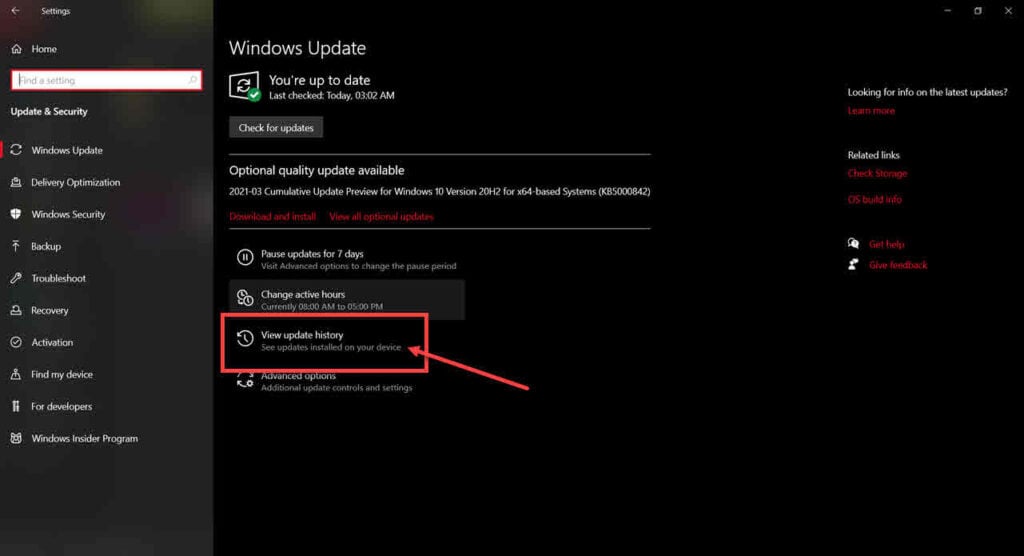
Step 3: Click on the Uninstall updates link.

Step 4: Uninstall any recently installed updates.

Now restart your PC and try again.
Disable Fast Startup
Fast Startup stores your current Windows session so that when you restart your computer you can pick up where you left it quickly. However, this feature can often cause conflicts and if your stored session is corrupted, even crashes.
Check out our detailed guide on how to disable Fast Startup in Windows.
Scan for malware
Another thing that you should do is run a full system scan using anti-malware software that’s not Windows Defender. You can use Malwarebytes, Bitdefender or Avira.
We recommend against using Windows Defender for scanning here because if the antimalware service is suddenly hogging up a lot of your system resources, there’s a chance that it might’ve been infected by malware which it might be able to detect.
Also read: What is Aggregator host.exe? Everything you need to know
Update unknown drivers
Unknown device drivers can cause PC crashes when used. Try updating them to see if that resolves your problem.
Step 1: Right-click Start and select Device Manager from the menu.
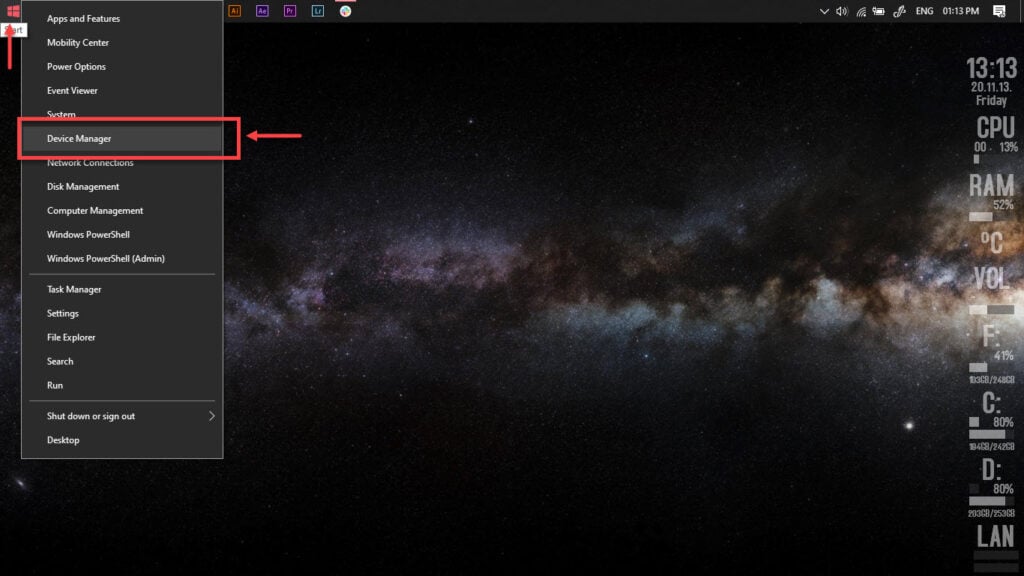
Step 2: Locate the unknown driver, it should have a warning triangle next to it, right-click on it and click on Update Drivers.
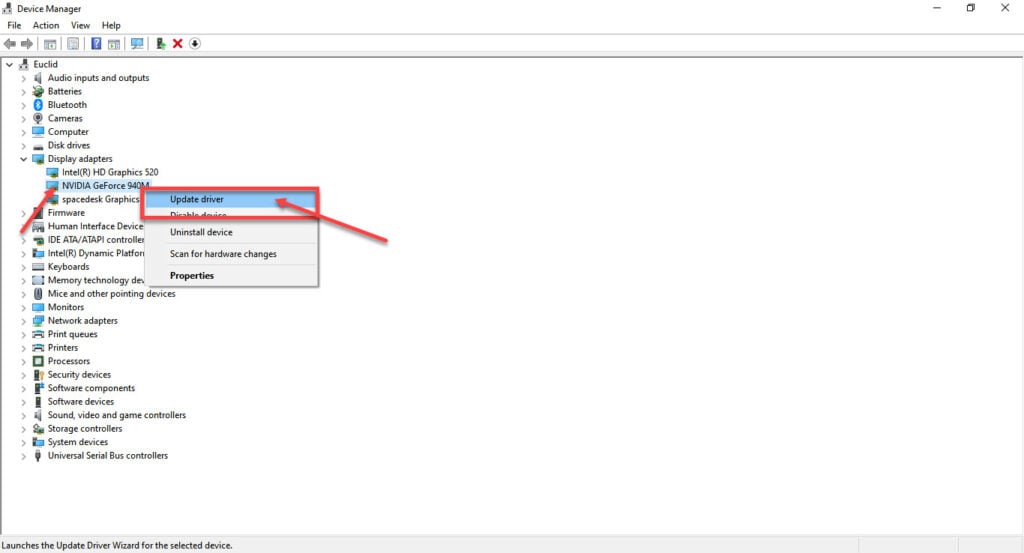
Step 3: Click on Search automatically for drivers. Windows will automatically look for and download the latest drivers for your hardware.
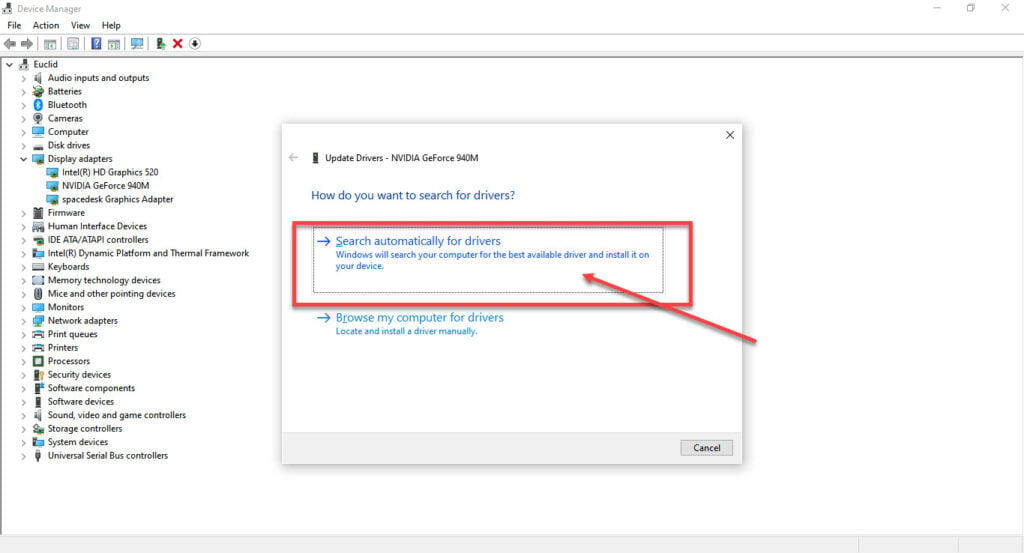
While this should help resolve the error, in case it doesn’t, click Uninstall device and restart your PC to force Windows to install the required drivers. You can then update them later.
Reinstall Graphics drivers
Graphics drivers can also cause random shutdowns or crashes if they’re corrupted or outdated. Try updating your GPU drivers to see if that solves your problem.
Step 1: Right-click Start and select Device Manager from the menu.

Step 2: Under Display Adaptors, find your graphics card’s name, right-click on it and click on Update Drivers.

Step 3: Click on Search automatically for drivers. Windows will then automatically look for and download the latest drivers for your particular GPU.

In most cases, this will update your drivers just fine. However, if you’re looking for a fresh start, click Uninstall device and restart your PC to force Windows to install the required drivers. You can then update them later.
Also read: Photoshop won’t let me drag and drop: 3 Fixes
Update your BIOS
Updating your BIOS is also a good idea if you’re frequently running into BSODs or, for that matter, their red counterparts. However, do keep in mind that the process for updating the BIOS differs greatly depending upon the make and model of your PC’s motherboard, so be sure to consult with an expert if you don’t know what you’re doing.
Perform a Disk Cleanup
Disk Cleanup is an integral feature of Windows. It can help iron out many issues that may otherwise impact your system’s performance, including repairing any processes using too much CPU.
You can refer to this article for more information on Disk Cleanup.
Run an SFC scan
Corrupt files are the number one reason why your PC might be behaving weirdly. Here’s how you can get rid of them and potentially resolve your issue.
Step 1: Press Windows Key + S to bring up the Cortana/Search box and search for Powershell. Open Windows Powershell from the search results.
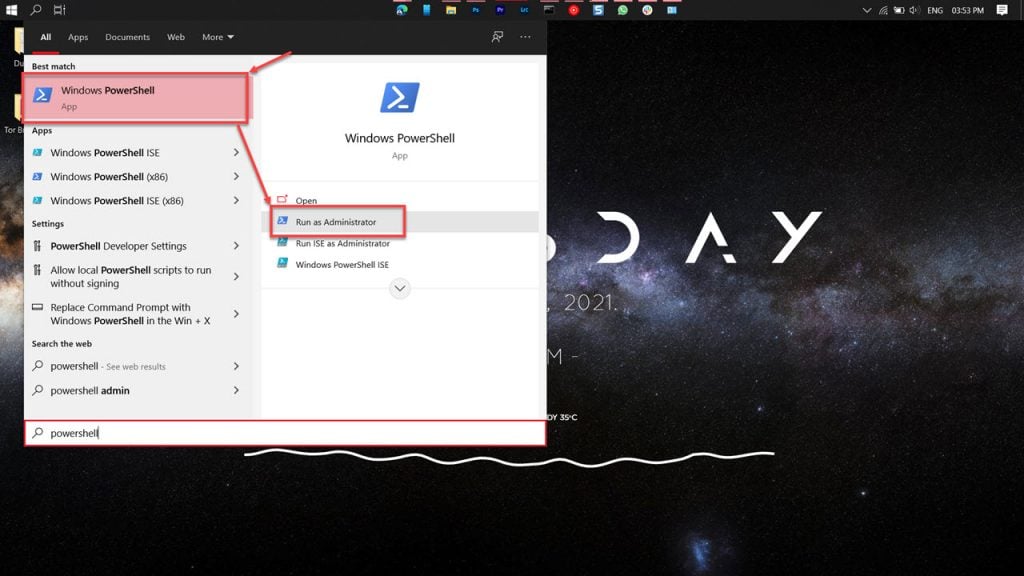
Step 2: Type sfc /scannow to scan your system for issues.
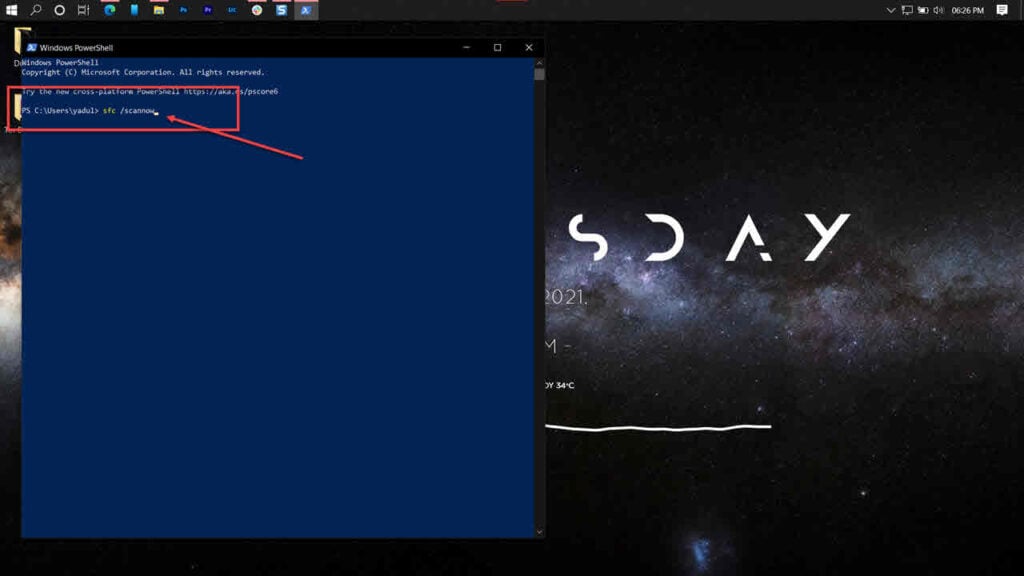
Step 3: If the SFC scan finds any problem, use the following command to resolve them.
DISM /Online /Cleanup-Image /RestoreHealth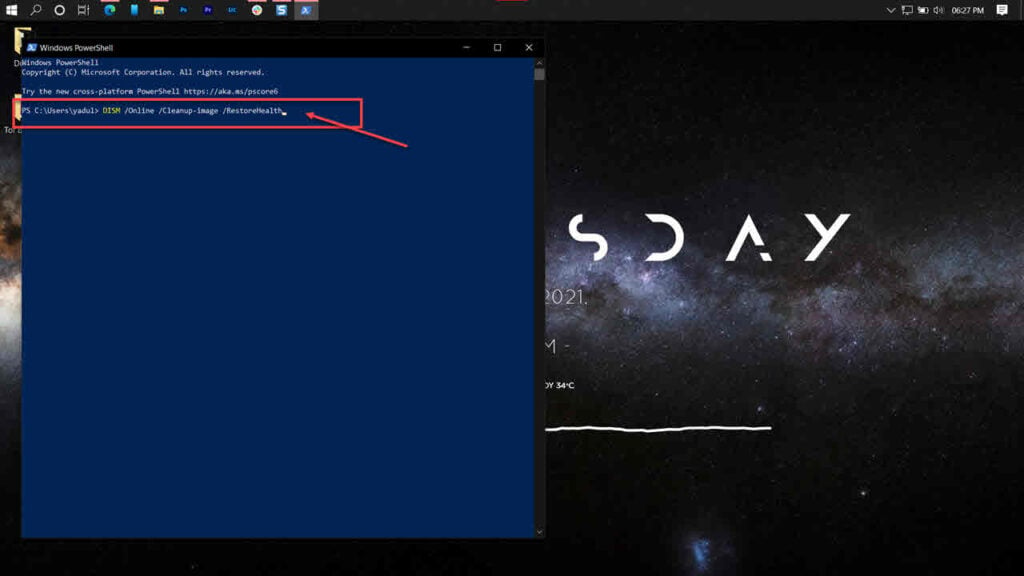
Restart your PC, and the error should’ve been resolved. If that doesn’t help, you can also run a DISM scan to fix any other errors by using this guide.
Also read: Top 7 laptops under ₹30000
Run the Windows Memory Diagnostics tool
If your RAM is seated properly but is failing, it can trigger this error. To check if there’s an issue with your RAM, follow these steps.
Step 1: Press the Windows key and search for Windows Memory Diagnostics. Then, click the corresponding search result.
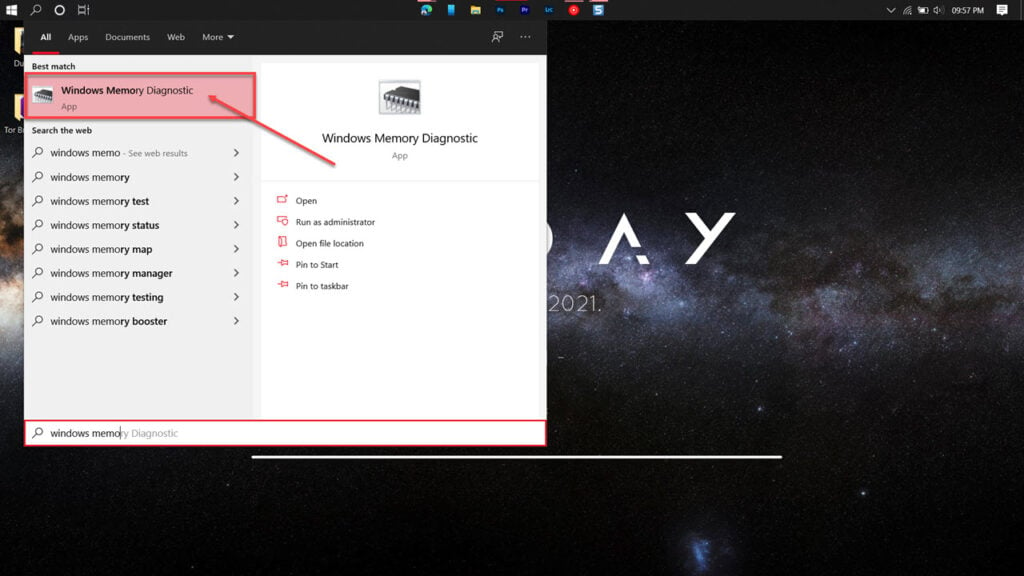
Step 2: Run the tool and click the Restart now button to check for problems.
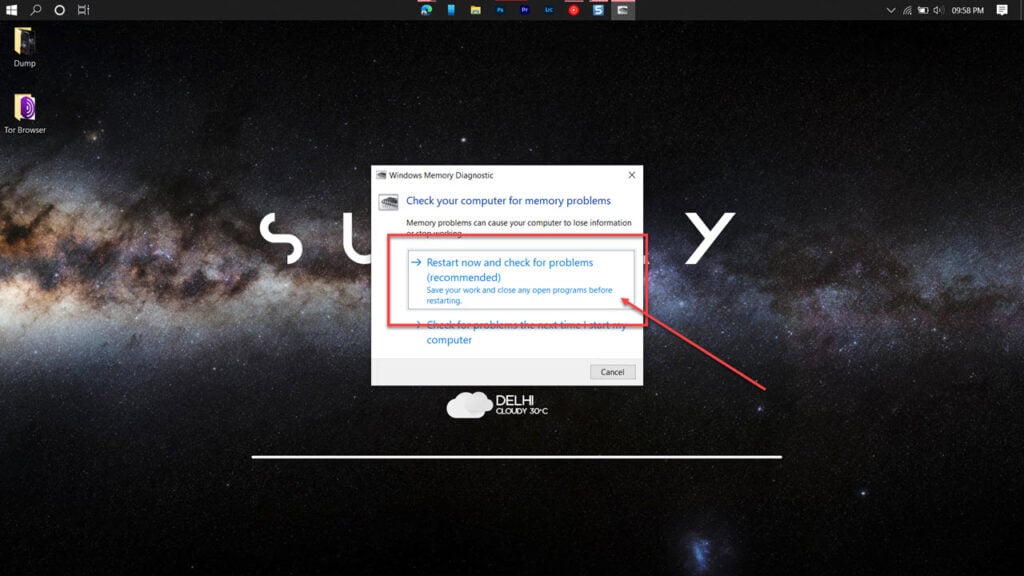
If you see some issues, try running the auto-troubleshoot to resolve the error.
Run the Check Disk utility
A BSOD can very well be a sign of your boot drive failing to perform as it should. Try running the check disk utility to check whether or not your storage drives are, in fact, functional.
You can refer to our detailed guide here on how to run the check disk utility.
Repair your system
If nothing else works, the best way to get rid of the problem is simply reinstalling or repairing your OS.
The Windows Media Creation tool is a great way to install and repair the OS. Using this, you can perform a clean installation or repair your OS without affecting your data.
You can download the Media Creation Tool here
Also read: How to check CPU, GPU and RAM usage in Windows 11?






